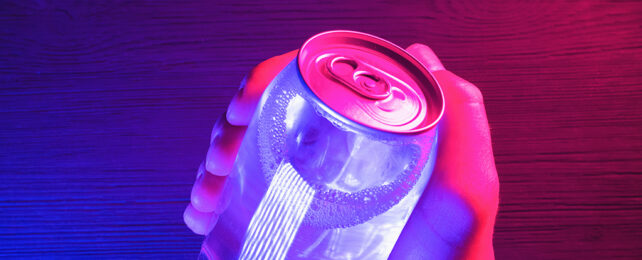Experiments on rats have shown that mixing energy drinks with alcohol can cause long-term problems with cognitive function, adding to concerns over young adults drinking habits.
The study was carried out by a team from the University of Cagliari and the University of Catania in Italy, and groups of male adolescent rats being given alcohol, energy drinks, or a mixture of both. Various standard experiments were then used to assess cognitive function --including brain scans and behavioral tests – up to 53 days after drinking.
These tests revealed that the animals that consumed the mixed drinks showed enduring changes in their ability to learn and remember, as well as changes in the hippocampus part of the brain – the area responsible for learning and memory.
"Little is known about whether the combined consumption of these drinks, during adolescence, may have long-term effects on central function, raising the question of the risks of this habit on brain maturation," write the researchers in their published paper.
Of course, both alcohol and energy drinks are popular with young people for a variety of reasons – from late-night parties to late-night study sessions – and the implications from this study are that these habits could be causing some long-term harm.
In particular, it seems that hippocampus plasticity could be affected, impairing the brain's ability to adapt and change in response to new information and demands. It's a crucial part of the brain's normal functioning.
While the rats on alcohol and energy drinks initially showed a boost in certain brain metrics and functions – including a rise in a protein that drives neuron growth – these benefits didn't last, and over time and into adulthood there was actually a decline in brain capability.
"Our results show that alcohol mixed with energy drinks consumption during the peri-adolescent period produces adaptive hippocampal changes at the electrophysiological and molecular levels, associated with behavioral alterations, which are already detectable during adolescence and persist in adulthood," write the researchers.
These results still need to be confirmed in human studies, and there's likely differences between sexes due to hormone interactions that they were not able to explore in this study. But there findings suggests that health concerns over energy drinks are justified. Alcohol has plenty of health implications of its own, and it's common sense that mixing the two together in any kind of significant way isn't the best idea.
The levels of drinks given to the young rats were the equivalent of binge-drinking, a behavior that appears to be on the rise among young human adults. Now the researchers want to see further studies into what the consequences might be.
"Overall, the analysis of the whole set of data obtained strongly suggests that alcohol mixed with energy drinks, during adolescence, may have upshots that are not necessarily the sum of those observed with ethanol or energy drinks alone and permanently affect hippocampal plasticity," write the researchers.
The research has been published in Neuropharmacology.
